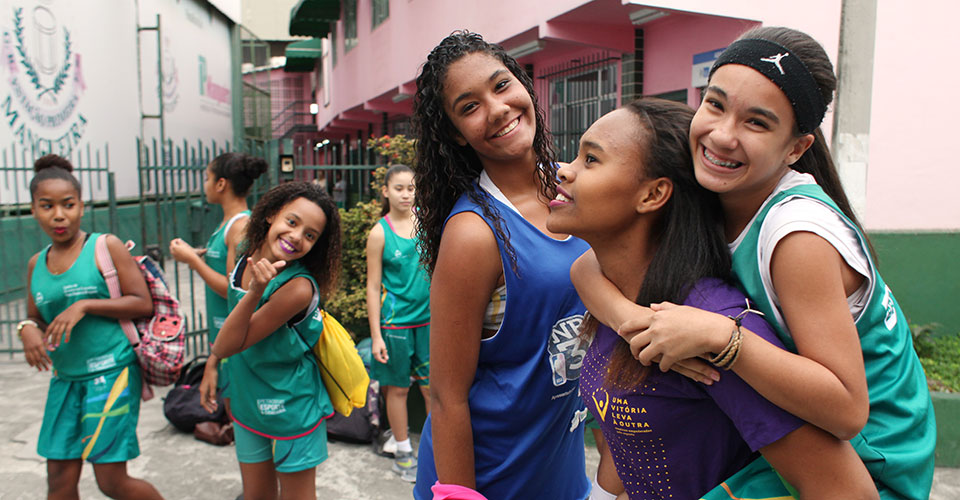“Some people say that it is shameful for girls to go to work or go to school. These are old traditions and conventions.” These are the words of Alan and Israa, two Syrian girls who, through a UN Women-supported training and community centre in Beirut, Lebanon, are learning how to repair mobile phones. This training is helping to break down traditional ideas about what girls can and cannot do, and through giving them relevant skills for their future, it is building resilience and helping to break conventional isolation.
This year, on the International Day of the Girl Child, we are focused on how to ‘EmPOWER Girls: Before, during and after crises’. Throughout 2017 we have seen growing conflict, instability and inequality, with 128.6 million people this year expected to need humanitarian assistance due to security threats, climate change and poverty. More than three-quarters of those who have become refugees or who are displaced from their homes, are women and children [1]. Among these, women and girls are among the most vulnerable in times of crisis.
Displaced and vulnerable women and girls face higher risks of sexual and gender-based violence, as well as damage to their livelihoods [2]; girls are 2.5 times more likely than boys to miss school during disasters [3]; and displaced girls are often married off as children in an effort to ensure their security. A 2013 assessment estimated a rise in the percentage of Syrian girl refugees in Jordan being married before age 18 from below 17 per cent before the conflict, to more than 50 per cent afterwards.
At UN Women, we are working to ensure that girls experiencing crises have positive options that allow them to grow and develop social and economic skills. Along with local women’s organizations, we support women and girl refugees through our Global Flagship Initiative, on Women’s Leadership, Empowerment, Access and Protection in Crisis Response (LEAP) [4], which boosts civic engagement and leadership by advocating for women’s political and social participation at the local, national and international levels. LEAP also establishes Empowerment Hubs where women can network and access critical services and training, and provides job placements, cash-for-work initiatives and training for businesses.
Programmes like these can turn situations of displacement into opportunities for empowerment for girls and young women, remove them from potentially violent situations, and serve as a path to economic security so that they are not forced to marry older men to provide for their physical and financial well-being.
As Alan and Israa experienced, UN Women is also tapping into the possibilities of mobile technology, developing a Virtual Skills School, so that women and girls who have dropped out of school due to early marriage, childbearing or traditional practices, who are living with a disability, or who are displaced from their homes and in refugee camps, have access to second-chance learning.
On the International Day of the Girl Child, let us commit to investing in skills training and education for girls and livelihood activities for young women around the world who are facing crises. Far from being passive recipients of assistance, these girls are leaders who will use the skills that they develop today to rebuild their communities, and create a better future for all of us.
Tweet